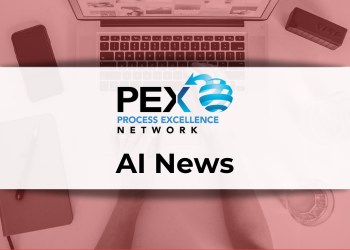Nvidia, OpenAI, and Lloyds Banking Group

Here are the latest updates in the artificial intelligence (AI) sector, covering significant developments in research, technology releases, and industry partnerships.
Nvidia Plans Major Investment in AI Infrastructure
Nvidia has announced an ambitious plan to invest up to $500 billion in AI infrastructure across the United States over the next four years. This investment is a response to President Trump’s ongoing tariff discussions, particularly regarding semiconductors largely produced in Taiwan.
With concerns about the costs of outsourcing production, Nvidia is shifting its focus to American manufacturing. Production of their Blackwell graphics processing unit has already commenced in Phoenix, Arizona. Additionally, new facilities are being developed in collaboration with manufacturers such as Foxconn in Houston and Wistron in Dallas. Both plants are set to ramp up production within the next 12 to 15 months.
Jensen Huang, the CEO of Nvidia, emphasized that this move towards domestic production allows them to better satisfy the increasing demand for AI chips and supercomputers. The White House has commented on Nvidia’s decision as a demonstration of “the Trump Effect in action.” However, Nvidia anticipates a $5.5 billion revenue decrease due to the restrictions imposed on selling essential AI chips to China.
OpenAI Develops New AI Agent for Software Engineering
OpenAI is currently developing an AI agent that aims to automate the tasks typically performed by software engineers. According to CFO Sarah Friar, this new development goes beyond simply assisting existing software engineers; it aims to fully replace certain tasks that engineers commonly handle.
Friar explained that the AI, named “A-SWE,” can perform functions such as building applications, conducting quality assurance tests, bug fixing, and generating documentation—tasks that engineers often find tedious. The goal is to significantly increase the productivity of software teams by automating these labor-intensive processes.
Friar described “A-SWE” as having a human-like quality, excelling not only in technical tasks but also in creative areas like design and writing. This represents a notable advancement in the development of agentic AI.
Lloyds Banking Group Collaborates with Google Cloud
Lloyds Banking Group is undergoing a strategic transformation by utilizing Google Cloud’s AI and data science capabilities to enhance customer and colleague experiences. The collaboration aims to provide innovative, personalized financial services.
The bank is deploying a new machine learning and generative AI platform based on Google Cloud’s Vertex AI. This partnership has allowed the group to launch over 80 new machine learning initiatives and implement more than 18 generative AI systems across its operations. They anticipate rolling out an additional 12 generative AI systems by the end of June.
Ranil Boteju, the Group’s chief data and analytics officer, expressed that transitioning to Vertex AI has transformed the organization, enabling faster innovation and consistent access to advanced AI solutions while providing flexibility with various large language models.
Partnership Between Perplexity and Vespa.ai
Perplexity is joining forces with Vespa.ai to enhance their AI-driven answer engine capability. This collaboration aims to improve search result speed, accuracy, and relevance using Vespa’s powerful platform.
The new integration, carried out by teams from both organizations, focuses on optimizing high-performance vector and text search capabilities. Jon Bratseth, the CEO of Vespa.ai, highlighted that this project showcases the platform’s range and reliability, allowing for superior conversational experiences for users globally.
Shift in Managerial Attitudes Towards AI
A recent survey conducted by Beautiful.ai reveals that managers are becoming increasingly skeptical about the idea of AI fully replacing human workers. The survey involved 3,000 managers and documented a shift in perspectives regarding AI’s role in workplace productivity. Many managers are now focused on integrating AI in ways that maintain human value in organizations.
The survey indicated that 63% of managers believe teams would struggle without human employees, marking a significant increase from the previous year. Furthermore, only 30% thinkAI replacement of staff would yield financial benefits, a 17% drop from the previous year.
Concerns also persist about employee fears regarding AI’s role, with 64% of respondents believing workers feel that AI tools could diminish their worth. This has led to increasing worries among managers about employee resistance to AI technologies at work.
Stay informed with more AI news!





